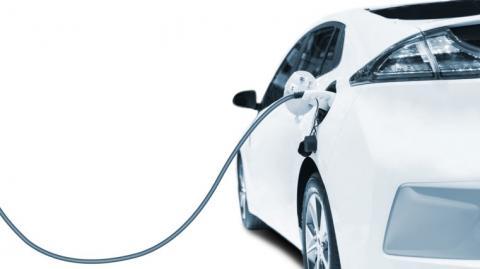2025 EV Tax Incentives for A Greener Future

Written by Fatikha Faradina, tax officer of Directorate General of Taxes
“There is no Planet B.”
These four words, echoed by President of France, Emmanuel Macron, during global climate talks, serve as a stark reminder of our shared responsibility to safeguard the Earth. As the planet faces mounting environmental challenges from rising emissions to resource depletion, governments around the world are called to act decisively. In Indonesia, one such action is the implementation of tax incentives for electric vehicles (EVs), a step aimed not only to reduce carbon footprints but also to shape a more sustainable future. Through some policies like the value-added tax (VAT) borne by the government (PPN DTP) for EVs in 2025, the country is steering its economic engine toward green innovation due to the race against climate change. Delay is no longer an option.
In its continued pursuit of a sustainable and low-emission future, Indonesian government has renewed its commitment to the EV industry through extended tax incentives in 2025. One of the key measures is the PPN DTP for domestically produced battery electric vehicles (KBLBB). EV sales in Indonesia have shown remarkable growth. According to The Association of Indonesia Automotive Industry (GAIKINDO), from January to December 2024, 24,704 domestically produced passenger EVs were sold, while imported EVs accounted for 18,489 units brought the total to 37,619 units. It marked a 73% increase from the previous year, with EVs now comprising 6.25% of total passenger vehicle sales, up from 2.12% in 2023 and 1.3% in 2022.
Continuous Policy from Year to Year
At the beginning of the year, the government issued The Regulation of The Minister of Finance Number 12 of 2025 on The Value-Added Tax Borne by The Government on The Sale of Four-Wheel and Bus-Type Battery-Based Electric Vehicles and Luxury Sales Tax Borne by The Government on The Sale of Four-Wheeled Low Carbon Emission Vehicles for Fiscal Year 2025 (PMK 12/2025). Under the new framework, the PPN DTP scheme continues with a focus on supporting local production and on encouraging technological investment which are borne at 10% of its sales price for battery electric vehicle with a Domestic Component Level (TKDN) ≥40% and 5% of its sales price for battery electric vehicle with the TKDN between 20% and 40%. The VAT is borne by the government at the point of sale to end consumers, incentivizing both producers and buyers. This policy applies from January to December 2025, with the criteria of eligible vehicles to be determined by the Ministry of Industry.
This VAT incentive forms part of a comprehensive policy package designed to accelerate the growth of Indonesia’s EV ecosystem. In addition to PPN DTP, through The Regulation of The Minister of Finance Number 9 of 2024 on Luxury Sales Tax Borne by The Government on The Import and/or The Sale of Four-Wheeled Battery-Based Electric Vehicles For Fiscal Year 2024 (PMK 9/2024), the government offers a 15% Luxury Sales Tax (PPnBM DTP) for imported EVs. It applies for both completely built-up (CBU) and completely knocked down (CKD) units. Besides, the incentive also includes the exemption of import duty for the EVs under Free Trade Agreements (FTA) and Comprehensive Economic Partnership Agreements (CEPA).
Hybrid vehicles also receive tax facility of a 3% PPnBM DTP under the low carbon emission vehicle (LCEV) program. Moreover, the policy package extends beyond vehicle incentives to support labor-intensive industries involved in EV production. It includes the income tax article 21 borne by the government for the employees earning up to IDR10 million per month, the 5% interest subsidies for machinery revitalization, and the 50% subsidies for work accident insurance for a six-month period. These measures are expected to create a robust foundation for sustainable industrial growth while advancing Indonesia’s green transformation.
To ease administrative burdens, VAT refund is available for registered taxable entrepreneurs (PKP) under the low-risk taxpayer classification. The refund process follows The Regulation of The Minister of Finance Number 39/PMK.03/2018 on The Procedure of Tax Refund in Advance. It eliminates the need for a prior request if the criteria are met, such as verified transactions, proper tax reporting, and absence of ongoing audits or criminal charges. The Directorate General of Taxes (DJP) is obliged to verify tax invoices and to ensure tax compliance, with the tax refund granted only after formal and substantive reviews.
This incentive structure not only encourages EV adoption but also strengthens domestic manufacturing capabilities by tying VAT relief to domestic component. It reflects Indonesia’s broader goal of establishing itself as a regional EV hub, reducing reliance on fossil fuels and achieving its net-zero emission target. By lowering the cost barrier for consumers and offering tangible support to manufacturers, the government is accelerating the shift to cleaner mobility, not just as an environmental commitment, but as a national economic strategy.
Policy Benchmark
Compared to global benchmarks, Indonesia’s EV tax incentive policy is aligned with strategies employed by leading nations in the clean mobility transition. For instance, Norway has long led the charge by completely exempting EVs from VAT and import duty, resulting in EV sales comprising over 80% of new car sales in 2024. Similarly, China, the world’s largest EV market, provides generous purchase subsidies, reduced registration fees, and priority licensing, while also supporting local production through value chain subsidies and research and development grants. The United States, under the Inflation Reduction Act, offers federal tax credits up to USD7,500 for EV purchases, but ties eligibility to domestic component requirements and final assembly in North America, echoing Indonesia’s TKDN-based PPN DTP scheme.
In this global context, Indonesia’s 2025 tax incentive, particularly its dual focus on consumer relief and local industrial development, demonstrates a strategic blend of fiscal support and national competitiveness. It positions the country as a rising player in the regional EV market.
- 2240 views
